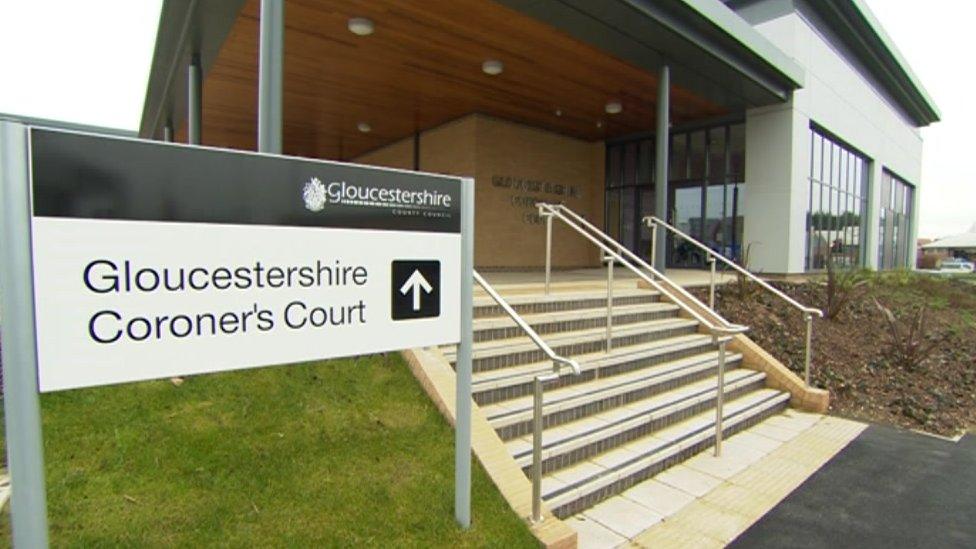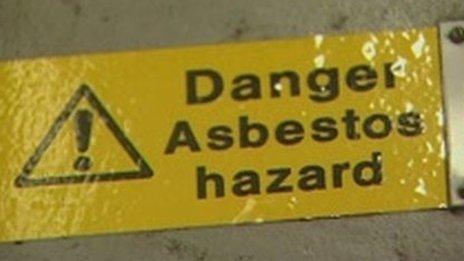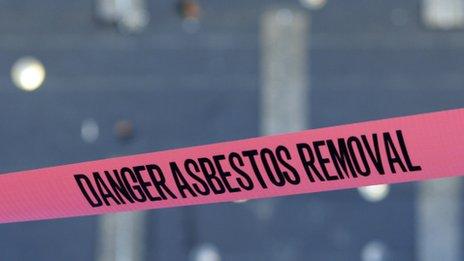Quedgeley man killed by asbestos in the workplace
- Published

When materials containing asbestos are disturbed, fibres are released into the air which can cause diseases if inhaled
A coroner has ruled that a man died as a result of frequent exposure to deadly asbestos during his 32-year career.
David Mills, of The Causeway in Quedgeley, was diagnosed with asbestos-related lung cancer in 2020.
He reported regularly coming into contact with the fibrous material at Royal Mail post office sites while working as an electrician.
A coroner ruled his cause of death was "industrial disease" after he passed away on 30 November this year, aged 71.
Mr Mills first began working for South West Post (later taken over by Romec Ltd) in 1979 and his duties included electrical maintenance and installation.
Many Royal Mail sites where he worked, including Tewkesbury, Ross on Wye and Gloucester, were undergoing refits at the time and asbestos was present in ceiling and roof tiles, panels and fuse boxes.
In a statement made by Mr Mills in which he took civil action against his former employers, he explained that the asbestos was disturbed while work was being completed and would form a 'white powder'.
Mr Mills also stated that he often worked in confined spaces with no ventilation and without a facemask, as he was not informed of the dangers of the fibrous material.
His claim for compensation was eventually settled through solicitors.
At an inquest held on 14 December, area coroner Roland Wooderson ruled that Mr Mills' mesothelioma cancer diagnosis was likely the result of asbestos inhalation over an extended period of time, from 1979 to 2011.
"He remembers an occasion when he was exposed to asbestos in the mid 1990s during major refurbishment work at the Royal Mail in Gloucester," Mr Wooderson said.
"A colleague with whom he was working became very upset when he realised they were dealing with asbestos," he continued.
"In panic, he started water over the asbestos to dampen it down. They spoke to the boss, who said to carry on with it as it would be OK and they had no choice because the work had to be done within a very short time frame," he added.
Professor Nick Maskell, of the Bristol Academic Respiratory Unit, said in a statement to the inquest that mesothelioma is caused almost invariably by asbestos exposure, and the risk of getting the disease increases with the amount of exposure.
Blue asbestos is the most dangerous type, he added.
"In my opinion, Mr Mills' asbestos exposure at this company would have been enough to cause the development of mesothelioma and materially increase the risk that he would develop it," Mr Maskell said.

Follow BBC West on Facebook, external, X, external and Instagram, external. Send your story ideas to: bristol@bbc.co.uk , external
Related topics
- Published27 September 2011

- Published20 August 2012

- Published1 November 2023
